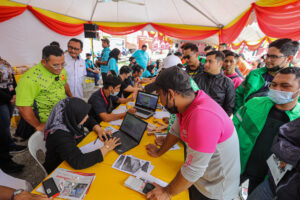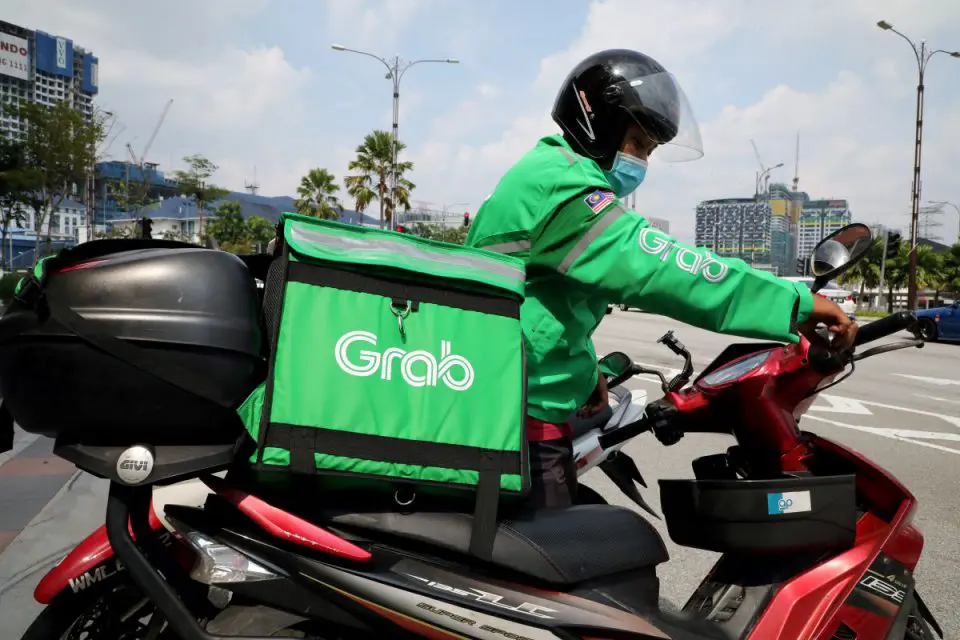KUALA LUMPUR, Dec 17 — Malaysia’s gig economy displayed healthy growth in 2023 despite normalising household and business activities post-pandemic amid increased awareness of digitalisation potential and various incentives supporting the transition.
In the third quarter of 2023 (3Q 2023), the market size stood at RM1.33 billion.
Malaysia Digital Economy Corporation (MDEC) chief executive officer Mahadhir Aziz said the market size in 3Q 2023 has already reached about 80 per cent of the market size for the whole year of 2022 (RM1.63 billion).
“This growth indicates there is continuous market demand from both household and business segments, particularly among the micro, small, and medium enterprises (MSME).
“There is increasing awareness of various gig economy platforms’ services and solutions in the market, which can facilitate them in their digitalisation journey,” he told Bernama.
The market size is based on MDEC’s internal analysis of the quarterly sharing economy platform’s report that covered online labour platforms but excluded other types of platforms, like money-sharing and goods-sharing platforms.
The sharing economy is an umbrella term for the gig economy, freelance economy, and other similar models.
According to MDEC’s internal analysis, over 100,000 new individuals are participating and earning income via gig economy platforms in Malaysia as of 3Q 2023, compared with 266,222 individuals in 2022.
Currently, there are over 140 gig economy platforms validated by MDEC and the Communications and Digital (KKD) Ministry since 2014, involving various activities beyond e-hailing and p-hailing, like healthcare, automotive, domestic services, as well as creative and professional services.

Various efforts to support the gig economy
Mahadhir said there are concerted efforts to address the growing complexity of the gig economy in Malaysia; thus, a National Sharing Economy Committee was formed as a central coordinating and problem-solving committee to support the growth of the gig economy business while protecting the interests of gig workers and users in general.
The committee convened two meetings this year and organised multiple task force discussions with various ministries and agencies to look into several issues and advise the government on potential intervention measures and policies.
Besides that, there are also ongoing efforts by the government via the Technical Committee on Sharing Economy (TC/3/9) to develop relevant industry standards to encourage more trustworthy digital platform operations in the gig economy and guide all stakeholders in understanding the sharing economy models.
“Last year, TC/3/9 produced the first Malaysian Standard MS 2754:2022 Sharing Economy-General Principles and is developing another standards document, which is expected to be published for public consultation this month,” he said.
Malaysia’s effort to promote inclusive participation in the gig economy has not gone unnoticed.
The World Bank in its recent report, “Working Without Borders-The Promise and Peril of Online Gig Work” released on September, has recognised Malaysia as one of the countries that successfully leveraged gig work to increase access to jobs, especially among women and youth via targeted initiatives such as eRezeki and Global Online Workforce (GLOW) by MDEC.
Glow, a programme for aspiring Malaysians to take up freelancing as a career and become digital freelancers, has conducted over 80 outreach events nationwide and successfully trained more than 10,000 participants, including digital freelancers and gig workers, compared with over 5,000 participants trained in 2022.
Under Glow, various activities, including awareness and outreach as well as training programmes via physical and online have been organised in collaboration with public and private sectors, including the Social Security Organisation (Socso), Majlis Amanah Rakyat (Mara), the Youth and Sports Ministry, higher learning institutions, and Felda in 2023.
Mahadhir said to promote greater awareness of local gig economy platform operators to government, community and industry at large, a pro tem committee of Malaysia Sharing Economy Association (MySEA) was announced at the second Sharing Economy Committee Meeting on October 31, comprising members from 15 local sharing economy industry players like GoGet, Bateriku, KiddoCare, TheLorry, and Inbosz.

Ongoing debate on gig workers’ welfare
Although there are significant concerns about the lack of social protections, fair wages, upskilling and reskilling opportunities for gig workers, the real challenge is for Malaysia to establish a clear definition of the gig economy.
At present, there is no clear definition, particularly of gig working and employment status and categories of gig workers, leading to continuous debates and different understandings among the community, industry players and authorities.
“Based on MDEC’s observation on the global policy response to the gig economy, various approaches were undertaken by different governments, and some of them were currently in the experiment stage, like experimenting with new employment categories to cater for the unique needs of the gig worker’s segment.
“While this option would be a relatively promising policy territory for Malaysia, it demands much deeper understanding from policymakers and legislators not only on the nature of the gig economy but also the practicalities of different platforms’ commercial policies, algorithms and business models,” he said.
Meanwhile, a lack of social protection and benefits, uncertainty and instability of income and livelihood, experiencing isolation and stress; and lack of a clear career path are among other challenges of gig workers in Malaysia this year.
Mahadhir said gig workers are often not covered by the same labour laws and regulations as regular workers, like minimum wage, the Employees Provident Fund (EPF), overtime, medical leave, health insurance, and other benefits.
They face fluctuating demand and supply of work and also have to deal with competition from other gig workers locally and globally and the possibility of being replaced by automation or artificial intelligence.
Moreover, gig workers might experience social isolation and a lack of support from their employers and peers, especially if they work remotely or alone.
They might also face higher stress and anxiety levels due to the pressure of meeting deadlines, delivering quality work and satisfying clients.
“Developing a long-term career in the gig economy requires gig workers to forge their career path. The constant changes in their work roles can also make it difficult to communicate who they are and what they can do,” he said.
— Bernama






